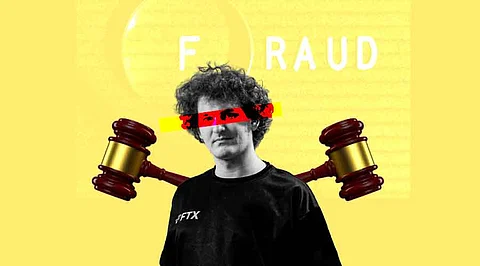

In a significant legal development, Sam Bankman-Fried, the founder of one of the world's largest cryptocurrency exchanges, FTX, has been convicted of fraud and money laundering following a month-long trial in New York. The jury reached a verdict after only a few hours of deliberation, marking a dramatic fall from grace for the 31-year-old entrepreneur. Bankman-Fried was once a billionaire and a prominent figure in the cryptocurrency industry, but now faces the prospect of spending decades in prison.
The U.S. attorney, Damian Williams, described Bankman-Fried's actions as "one of the biggest financial frauds in American history" – a multibillion-dollar scheme aimed at making him the "King of Crypto." The case centered on allegations of lying to investors and lenders, as well as misappropriating billions of dollars from the cryptocurrency exchange FTX, contributing to its eventual collapse. Bankman-Fried faced seven counts of fraud and money laundering.
Throughout the trial, Bankman-Fried maintained his innocence, admitting to making mistakes but insisting he acted in good faith. Following the verdict, his attorney, Mark Cohen, expressed disappointment but affirmed Bankman-Fried's determination to fight the charges.
The case took a significant turn against Bankman-Fried early on, as three of his close friends and colleagues, including his ex-girlfriend Caroline Ellison, pleaded guilty and agreed to testify against him in exchange for reduced sentences. These cooperators played a pivotal role in the government's case, streamlining it into a straightforward fraud trial rather than a complex crypto-related legal battle.
Prosecutors presented evidence showing that Bankman-Fried's crypto trading firm, Alameda Research, received deposits on behalf of FTX customers during the exchange's early days when traditional banks refused to open accounts for it. Despite public assurances to safeguard these funds, Bankman-Fried used the money to repay Alameda lenders, invest in property, and make political donations.
At the time of FTX's bankruptcy in November, Alameda owed the exchange $8 billion. Bankman-Fried's own testimony during the trial was an attempt to convince jurors that prosecutors had failed to prove he acted with criminal intent. He acknowledged making poor judgments but argued that they did not constitute a crime. He described himself as an overwhelmed, nerdy mathematician who was unaware of the financial discrepancies within his companies until shortly before FTX's collapse.
Bankman-Fried's downfall left many customers unable to recover their funds. Bankruptcy case lawyers have since stated that they have recovered the majority of the missing funds. The trial has been closely watched due to its potential implications for the cryptocurrency industry, which is still recovering from last year's market turbulence. The sector has faced scrutiny from U.S. regulators who have identified criminal activities within it.
Before the collapse of his companies, Bankman-Fried was a prominent figure known for mingling with celebrities and frequently appearing in the media and in Washington to discuss the crypto industry. His rapid success and deal-making earned him the nickname "the king of crypto." With the likelihood of new crypto regulations from Congress appearing remote, experts anticipate continued legal battles over the industry in U.S. courts, as regulatory agencies like the Securities and Exchange Commission and the Commodity Futures Trading Commission continue their efforts to combat cryptocurrency-related crimes.
This trial serves as a significant milestone in the ongoing evolution of the cryptocurrency industry's legal landscape. It underscores the importance of regulatory clarity and the need for industry players to adhere to established rules and ethical standards. The outcome will likely shape the sector's future and influence how it navigates challenges related to fraud, money laundering, and regulatory compliance.
Join our WhatsApp Channel to get the latest news, exclusives and videos on WhatsApp
_____________
Disclaimer: Analytics Insight does not provide financial advice or guidance. Also note that the cryptocurrencies mentioned/listed on the website could potentially be scams, i.e. designed to induce you to invest financial resources that may be lost forever and not be recoverable once investments are made. You are responsible for conducting your own research (DYOR) before making any investments. Read more here.
